Search this site ...
African decor
African decor can be hugely dynamic, creative and inspiring.
Colours can be evocative of the sunburnt earth; deep, verdant rainforests; softly wistful savannah plains; burnt orange sunsets or pinkly-purple sunrises and vibrant splashes of raw hues reminiscent of crazily energetic African market places.
Not to forget the graphic concepts of black and white, both figurative and literal, which often reflect the mastery of decoration used by African artisans.
Using African products in an interior or external environment gives one the opportunity to use unique pieces that portray the artistic and spiritual nature of the African people. Using quality art forms that reveal the complexity of their invention and their culture is a sure way to reflect one's own passion and creativity.
One can divide African decor (furnishing/decoration of a room) into the following categories:
- Antique/traditional, which includes both tribal and colonial pieces
- Nature inspired
- Safari/wildlife
- Ethnic/tribal including euro/ethnic
- Contemporary/modern, locally and internationally manufactured but inspired by Africa
- Recycled
These days, decorators and homemakers happily and successfully blend two or even three, amalgamating styles into one interior. Anything goes as long as it's tasteful! Whatever one's call, there is huge delight and joy to be taken from using both old, and new, African furniture and artifacts in one's spaces to create both a point of interest and elegance of form.
African art (paintings, sculpture, photography and installations), textiles, craft and furniture all contribute effectively to the styling of an African inspired environment.
Exteriors can also echo African nature with indigenous planting and landscaping including using sculptures for dramatic focus points.
African furniture production in past and current times often uses hardwoods like ebony.
As a citizen of this continent I believe it is essential to be aware of sustainable felling and production. We, as consumers, must use our conscience and try to source products from environments, companies and communities that are committed to sustainability and are also concerned with the welfare of the inhabitants, employees and societies.
Mutual benefit to all concerned with the production and purchase of the items manufactured must exist. There are products with sustainable timber certification and one should try to make an effort to search and purchase accordingly.
There are many ways of adding African decor authenticity and flavor to one's rooms and outdoor spaces:
- Furniture Artefacts: masks, shields, spears, walking sticks, knives, containers, snuff boxes, pipes, musical instruments, headwear
- Skins, hides and leather
- Textiles: cushions, pottery, basketry, beaded items, rugs, ceramics, frames, table linen, throws
- Lighting Accessories
- Fine Arts: paintings, prints, photographs
- Sculpture: wood, metal, stone
- Found objects, natural and discarded

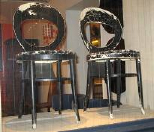 Furniture items, Vanessa Stromboni
Furniture items, Vanessa Stromboni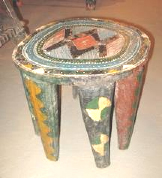
An individual has so many ways to make a statement with African decor.
The joy of it is that not everything needs to be about expense, there are many items that can be purchased through community practices which also ensure that the crafter/artist is receiving a deserving payment for the creation of the product.
Styles of African decor
Antique/traditional
There are two forms of decorating using traditional or antique African decor, furniture and accessories:
- Colonial, using antique furniture from trading or colonizing countries
- Tribal, using antique furniture from the indigenous peoples of Africa.
These days, designers and homemakers very often mix them up in an eclectic style which combines elements of both traditional and modern furnishings and lends itself to stunning dynamic spaces.
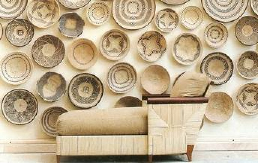 Stephen Falcke Designs
Stephen Falcke DesignsThis interior shot uses classic furniture upholstered in a kuba-inspired printed fabric and a dark wooden coffee table displaying a mix of accessories including a contemporary glass bottle holder and a genuine African decor artifact to lend authenticity to the scheme.
Nature inspired
There is much to arouse one's creativity in Africa's temporal landscapes:
The deep verdant forests of the Equatorial jungle; the azure seas of Eastern Africa; the Central savannah plains softly stretching in unfathomable distances; the ancient undulating forms of the desert dunes; rugged highland mountains; bright Namaqualand desert flowers - the list is endless and everyone's impressions will be individual and unique, whatever makes one's heart beat faster!
Natural materials abound; wood, roots, reeds, vines, pebbles and stones, clay, straw, grasses, leaves, shells, feathers, seeds, pods.
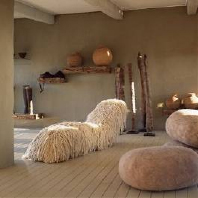 Interior with divan
Interior with divanIt is in this area that textures can really come to the fore as they can be found in all the natural fibres and the products that are created with them like textiles, baskets, blinds, floorcoverings, bedlinen and tableware and artistic creations like freeform sculptures.
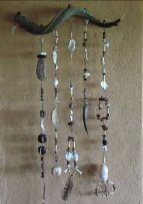 Guy Evans, kudu horn mobile, found objects
Guy Evans, kudu horn mobile, found objectsColours are softly subtle earth tones creating a relaxed atmosphere and a restful environment. Touchs of natural greens, burnt umbers and reds or watery aquas can be added as accents to create interest or diversion in the scheme.
For a more dramatic look inflect dark umbers, black, indigo or chocolate for graphic impact.
Coastal blues and sand
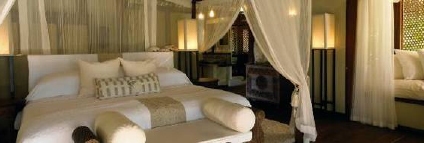 Vamisi island lodge, Mozambique
Vamisi island lodge, MozambiqueSoft sand colours, textures, bleached wood and touches of china blue, aqua and teal make for delightfully soothing surrounds.
Thatched roof simplicity meets vibrant African prints and azure sea wall colors. Natural timbers and contemporary lighting design complete the look.
Jungle greens
Tropical palms, insects, monkeys, lizards.. all these images add up to the lush, verdant, exotic feeling of the African tropical jungles. Interpret them freely in your patios, conservatories, dining and outdoor rooms.
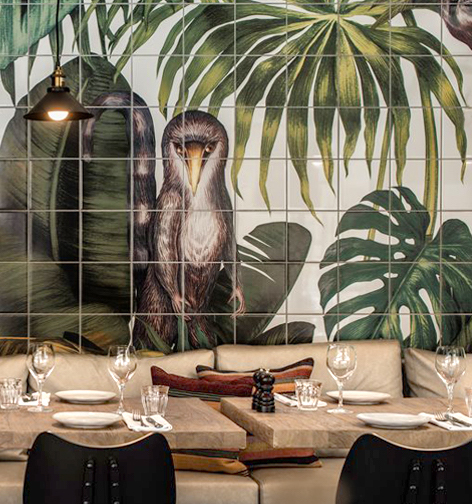
Mix with textures and fabrics, ceramics, wooden artifacts and carvings, a mystical, multi-faceted world that just dares you to become involved. Lamps, patterns and lighting add further layers of interest and texture.
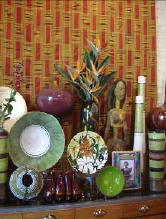 Africa nova, kente cloth and ceramics
Africa nova, kente cloth and ceramics
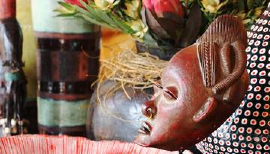
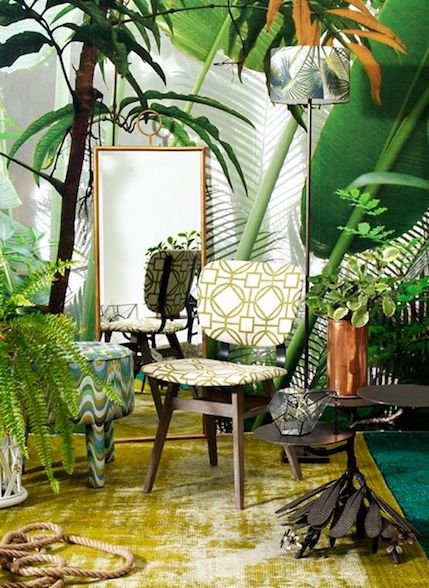
Natural foliage becomes the inspiration for a narrative African decor story that speaks volumes about the lush African forest environment.
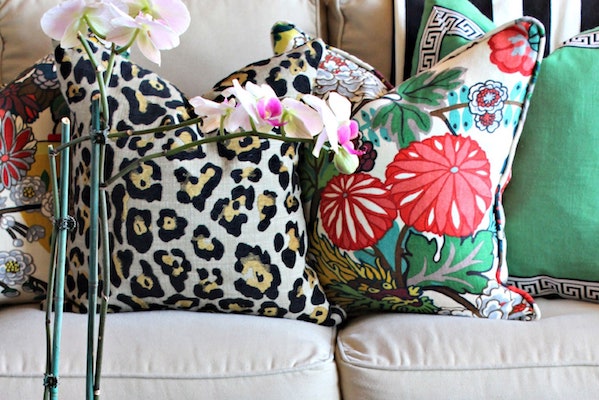
Don't be afraid to mix animal prints in with other colors and patterns
Safari/wildlife
This is an area where one can really go for drama catching all the energy and spirit of the African plains.
 soft furnishings, Dransfield and Ross
soft furnishings, Dransfield and RossAnimal prints matched with textured plains, fun elements in the room like pouffes, zebra skin rugs, animal carvings, grainy prints on the walls of Savannah landscapes to add authenticity - mix it up....go wild!
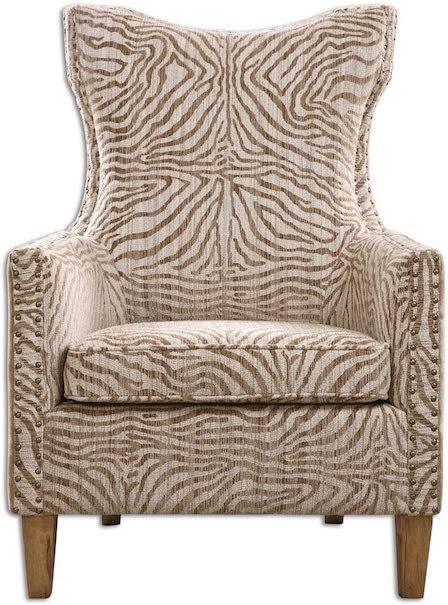
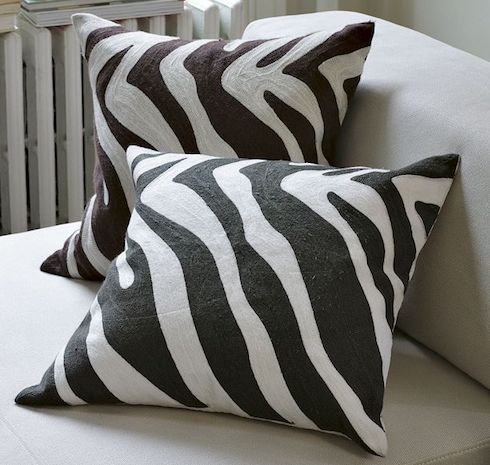
African animal wall prints can add a beautiful dimension to a classic setting.
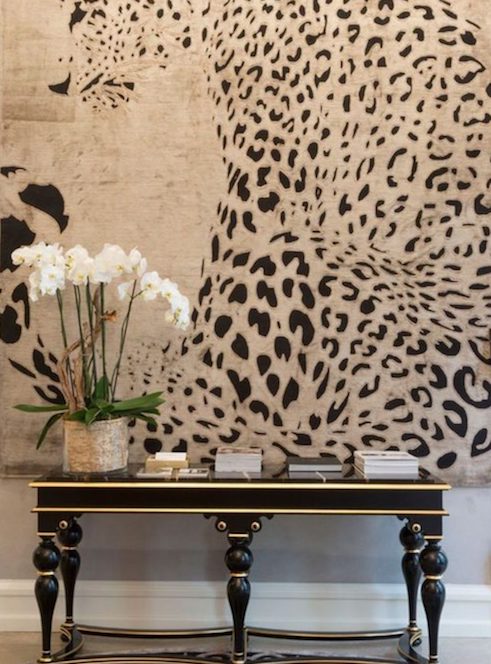
African tribal/ethnic
Bold graphic textiles, strong silhouettes, eye-catching tribal prints and impressive craftsmanship all brilliantly combine in this more contemporary take on this African-inspired living room featured above.
Warm earthy tones of rust, ochres, umbers, mud and graphite make up this palette. The same warm atmosphere will be added to one's habitat if used sparingly.
Or like the interior below, shot with bright red for contrast and dramatic effect.
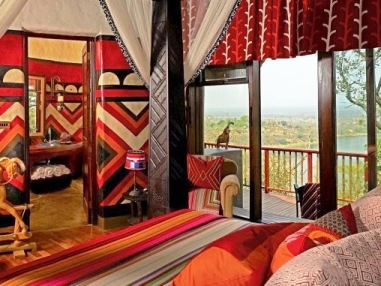 pamushana lodge, singita group
pamushana lodge, singita groupNatural fibre rugs on the floor will settle the room and luxuriant leather and dark burnished woods can be introduced to offset the patterns that are found in artifacts and fabrics.
Market color collision
Here one can explode with colour and energy and loose oneself in the enthusiasm of the African cultures who thrive in the market environment.
Scour galleries and markets for original artwork; you won't regret it. Contemporary African decor artists are urban dwellers and it doesn't take much to seek them out in their own studios where you will be richly rewarded by your experience.
Use authentic African decor fabrics, printed or woven and look for brightly hued baskets and rugs. Paint your walls in vibrant feature areas and offset all this with solid brights on your sofas. Buy some recycled furniture or wall art.
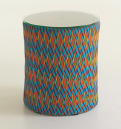 basket stool
basket stool Don't forget the value of white to provide a counteracting effect to all this color!
And to really add a touch of class, purchase an original piece of artwork to complement your African decor and if that's out of your budget, then a beautifully framed print or photo will do just fine.
Recycled furniture
There are many talented crafters and wood workers who upcycle/repurpose scavenged materials into amazing pieces of furniture. Using timber from broken and disused, painted, fishing boats or pirogues the work below is from a Barcelonian company called Artlantique which is based in Dakar, Senegal.
The beauty about this product is the graphic and colorful look of the painted planks from the sea craft. Covered in layers of paint, faded and distressed by weather and time the wood gives a rustic but richly textured appearance. Shapes are simple but attractive and sometimes are based on cultural versions of chiefs' chairs etc like the ones below...
From artist/designer Hamed Outtara of Ghana comes a range of recycled, metal drum furniture. Worked by hand they feature traditional patterning in a new way while still maintaining original textures and weathering like scratches and rusting. every detail of the process is carefully reflected on and executed in his country studio.
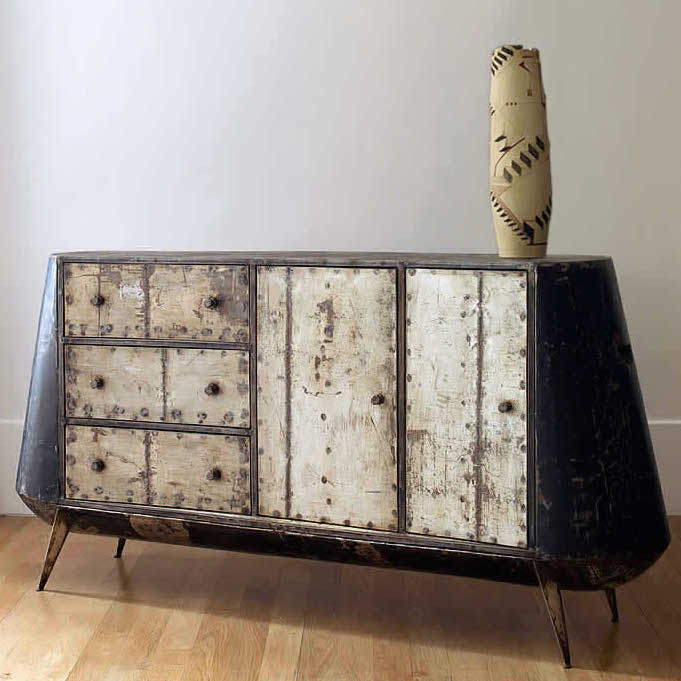
Says Hamed Ouattara " ART has a role to play in the development of Africa and my work reflects this conviction"
And, in true artistic spirit, amazing new forms are being created with contemporary materials like metal, polyfibres, resins, wire and plastics.
The market for contemporary African design is evolving.There has been an explosion on the world furniture and design market in the last 10 years of African-inspired product.
There are many things that contribute to this but foremost, I believe, is the impact that contemporary African decor artists are having in the art world. They are gaining recognition for their contribution to culture from their hosting nations like the UK and America, while Africa itself is steadily and actively promoting their own hugely talented artists.
Platforms such as Joburg Art Fair and Dakar Art Show are gaining in momentum and authority.
Furniture, soft furnishings, textiles (printed and woven), craft, accessories, wall decor, lighting, fine art, rugs and floor coverings, natural found objects are all areas which reflect this trend.
Furniture
M'Afrique by Moroso

The range featured below is made for both interior and exterior use as is that above.

Not all African contemporary furniture is so vivid and lively. More restrained earthy tones do exist, often beautifully complemented by steel and aluminium supports like the designer below.
Haldane Martin, South Africa
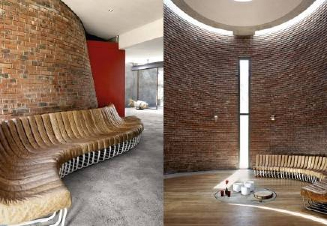
Black and white and shades of graphite mixed with metallics are a very arresting way of approaching African contemporary decor.
Bold reds will add contrast with great dramatic effect.
Contemporary Designers
The following designers are just a few who are making (or have made) their mark in the world of contemporary African furniture design:
- Kosi Aguessy, Togo
- Check Diallo, Mali
- Balla Niang, Senegal
- Jomo Tariku, Ethiopia/USA
- Gregor Jenkin, SA
- Ousmane Mbaye, Senegal
- Issa Diabate, Cote D'Ivoire/USA
- Jean Servais Somian, Cote D'Ivoire/France
- Chuma Maweni, SA
- Bibi Seck, Senegal/Paris
- Audrey Forson, Ghana
- Porky Hefer, SA
- Lani Adeoye, Nigeria
- Nelsa Guambe, Mozambique
Doktor and Misses
Doktor and Misses is a Johannesburg based, multi-disciplinary design company formed by its 2 designers Katy Taplin and Adriaan Hugo.
Kassena town is a furniture range created especially for a design exhibition in 2015. Echoing the mud buildings built by the men of the Kassena tribe of West Africa and decorated by the womenfolk in strong graphic patterns, the applied contemporary colors makes this a standout and enduring collection.
Another collection is called LALA, Surma V and Surma V1 shown above with photos of Lakin Ogunbanjo in the background and focusing on storage.
Peter Mabeo
Peter Mabeo is a designer who is based in Botswana but is steadily growing in international repute. While being very committed to local craft, his heritage and his workshops, the collaborations with international designers have led him to expand his creative vision to new found heights, saying "There is a uniqueness about the beauty of African material culture and our rich artistic heritage".
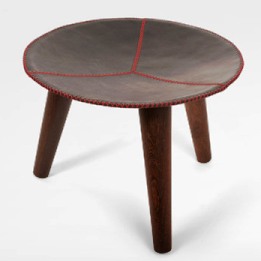 Kalahari stool, Mabeo with Claesson Koivisto, Rune
Kalahari stool, Mabeo with Claesson Koivisto, Rune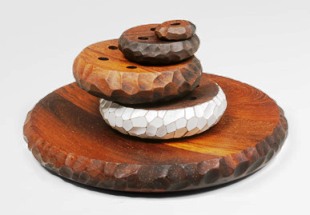 Seri series, Mabeo with Garth-Roberts
Seri series, Mabeo with Garth-RobertsEmploying about 20 people in his workshop, he uses sustainably sourced timbers like panga-panga for creating his streamlined and sophisticated product.
Atang Tshikare
This young South African designer has worked in collaboration with other designers, studios and mentors to create some outstanding design pieces.
Born in Bloemfontein in South Africa in 1980, he currently resides in Cape Town creating sculptural furniture, frequently one off pieces that have been influenced by his traditional culture and afrofuturism. The above piece made of raffia, wood and wooden beads is an ode to the celebration of all the women in his life.
Yinka Ilori
A British artist/designer of Nigerian descent pays homage to his cultural background and is inspired in his work by the city markets of his ancestral country. His homewares collection is reflective of the bright colors, pattern and dress of these markets.
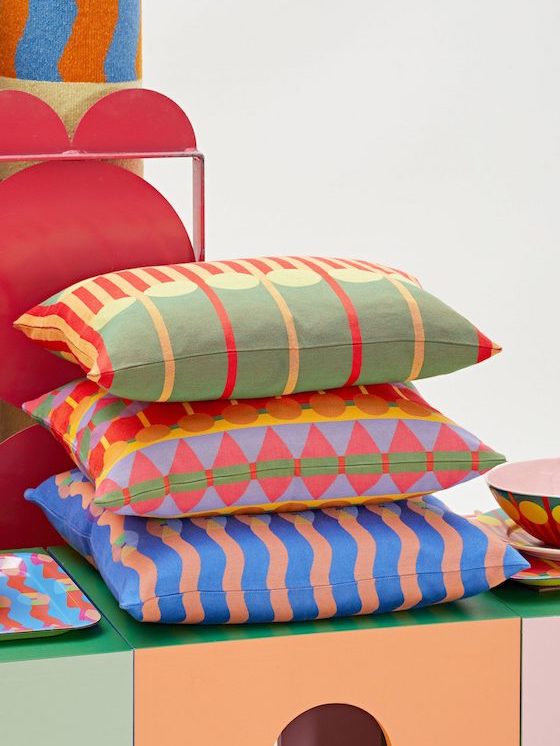
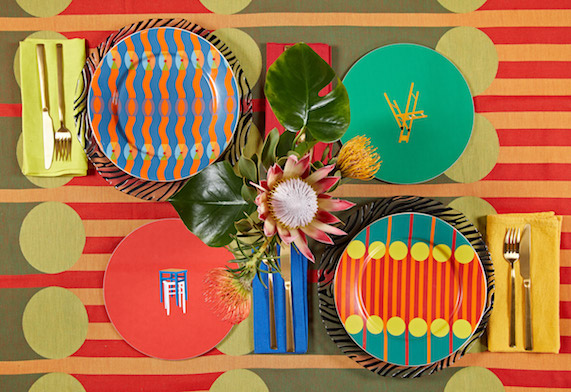 Yinka Ilori homewares
Yinka Ilori homewaresThese days his work has moved to include street projects and community sculptures as well as his repurposed furniture. Since 2011 he has worked to assemble a collection of striking and unique pieces of furniture each telling a story from his heritage and espousing his passion for sustainability.
Vogel Design .... Cape Town
Vogel Design is headed up by John Vogel, an architect turned industrial designer and his wife Terri. They have a factory in Woodstock, Cape Town and have a skilled, enabled workforce who put together predominantly timber furniture both off the line and bespoke (Southern Guild).
The designers enjoy the intersection between good, hard design and organic, free-flowing natural elements; very successfully managing to combine the two in their inspirational collection.
The reinterpretation of weaving and woven forms are an integral part of his furniture range - often being used for bench and chair seats and adding a sense of color and playfulness.
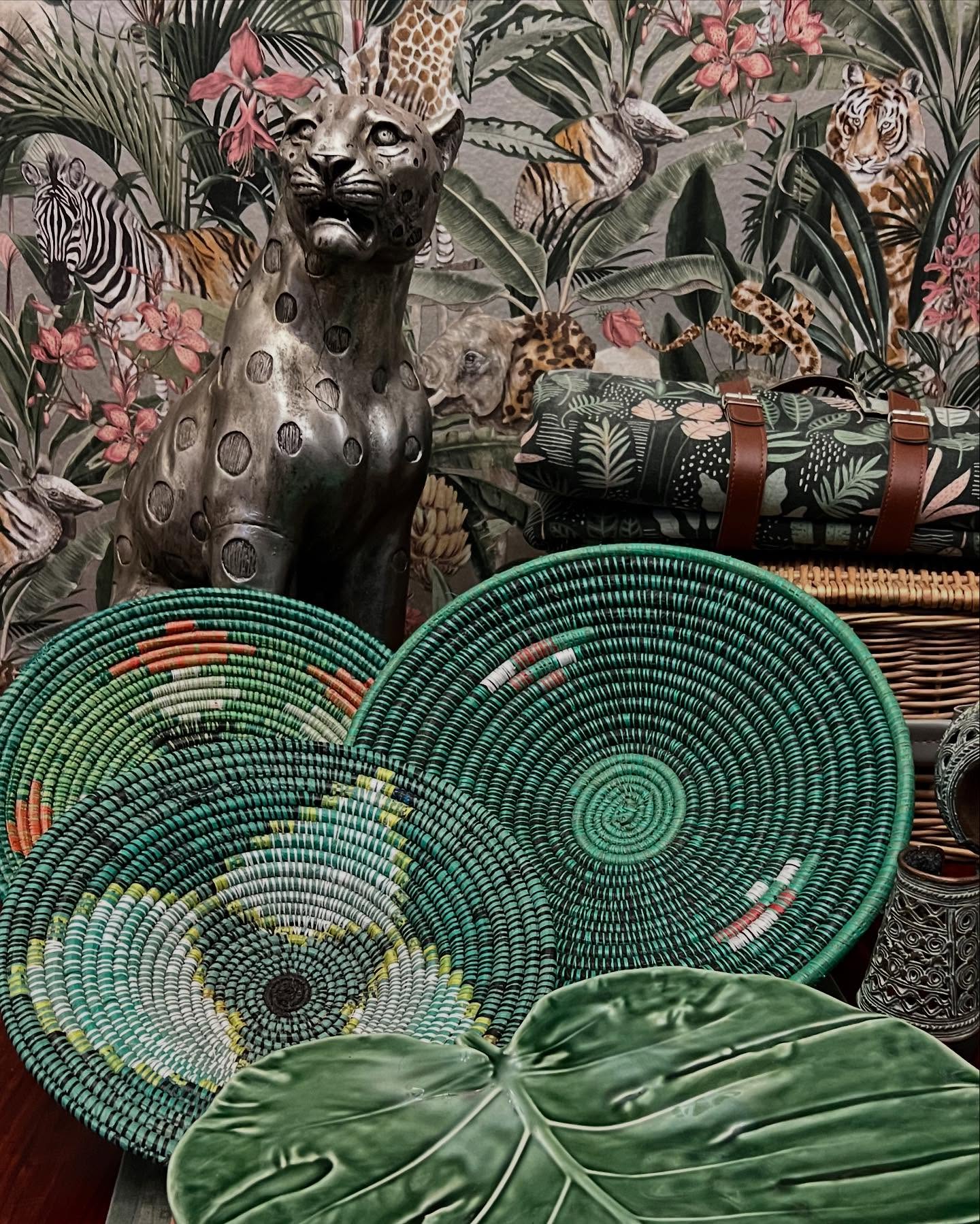
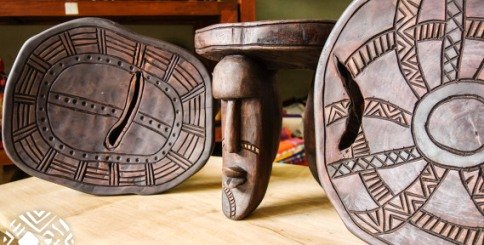
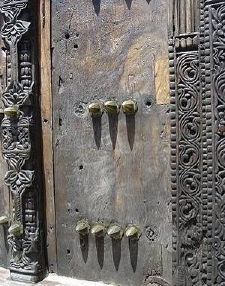
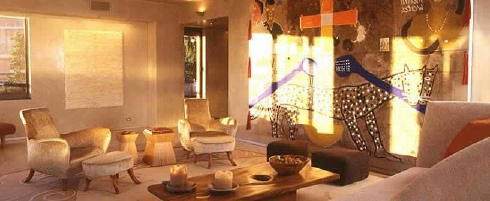
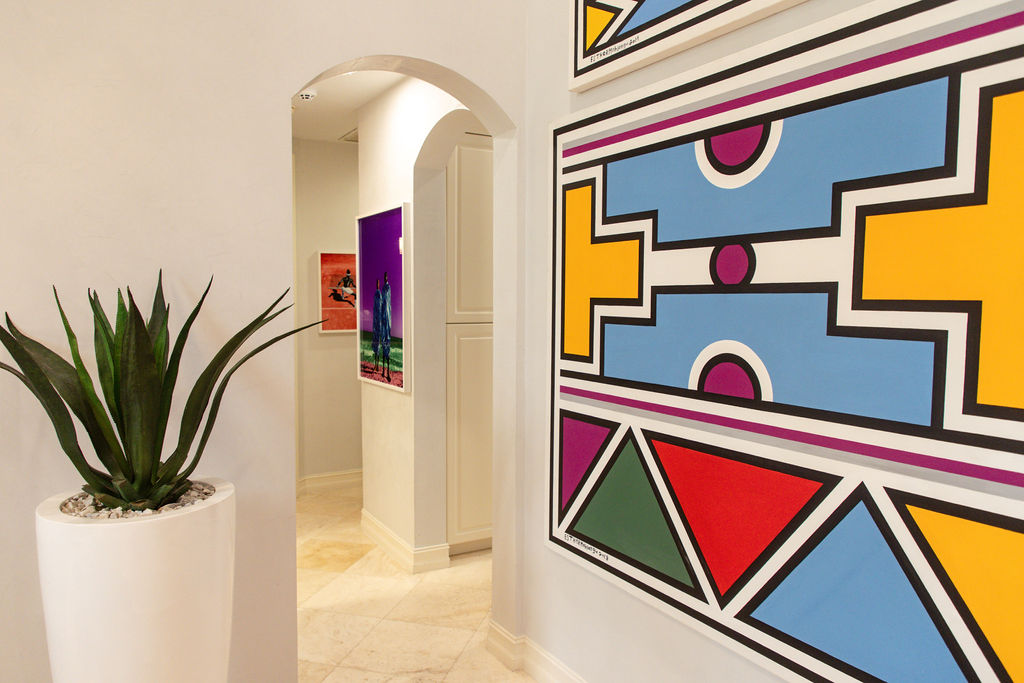

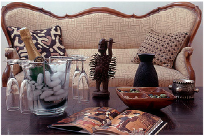
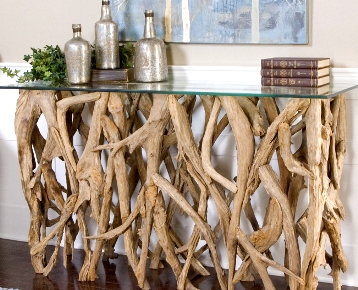
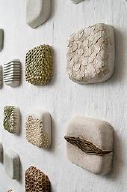
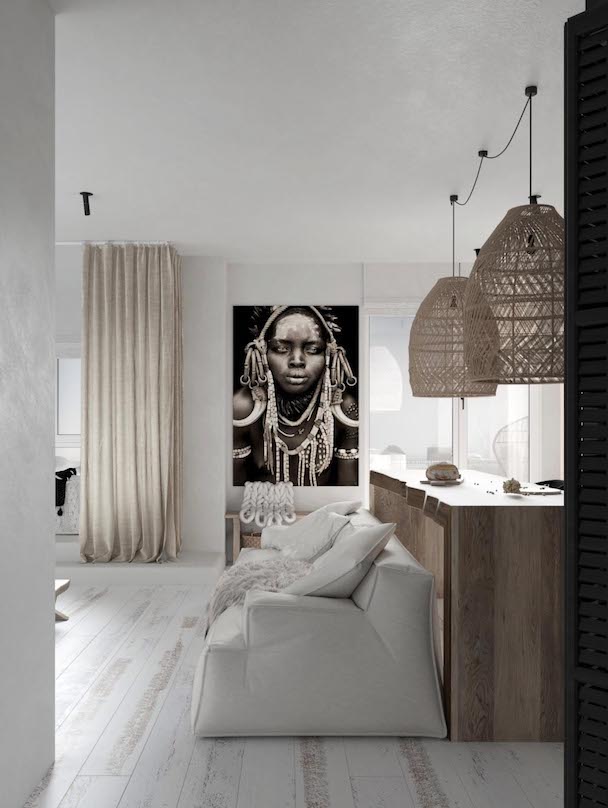
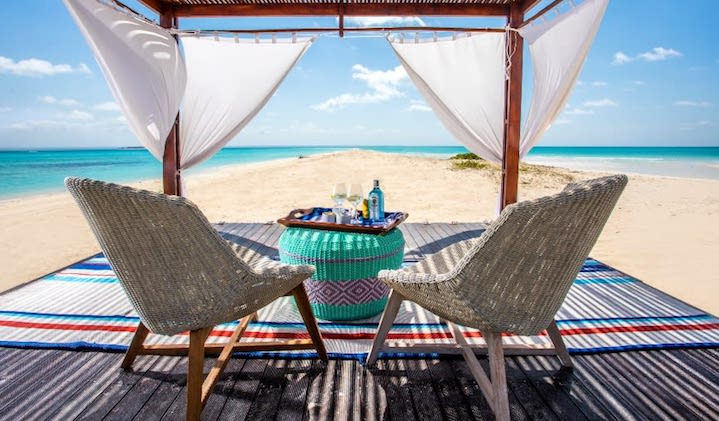
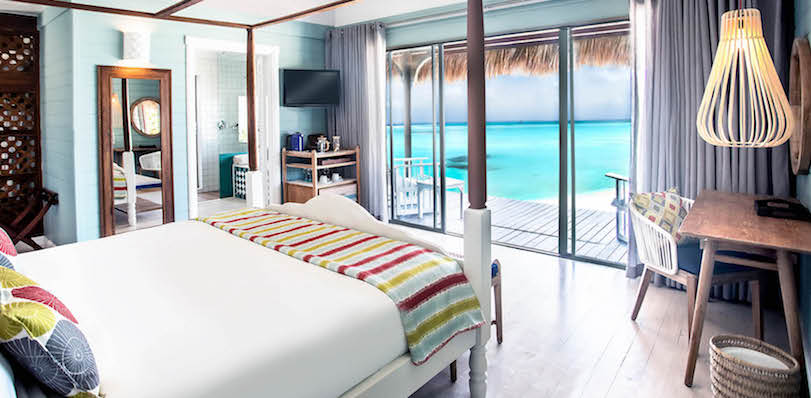
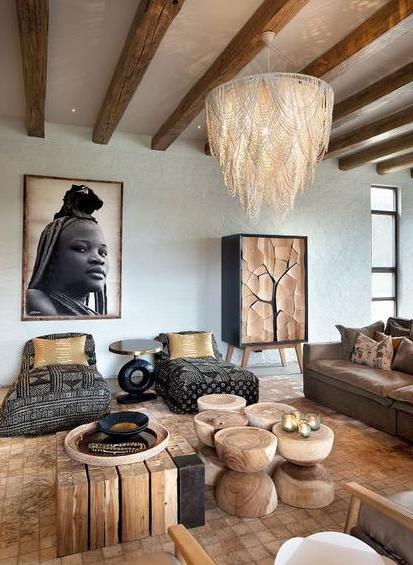
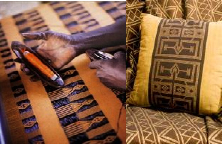
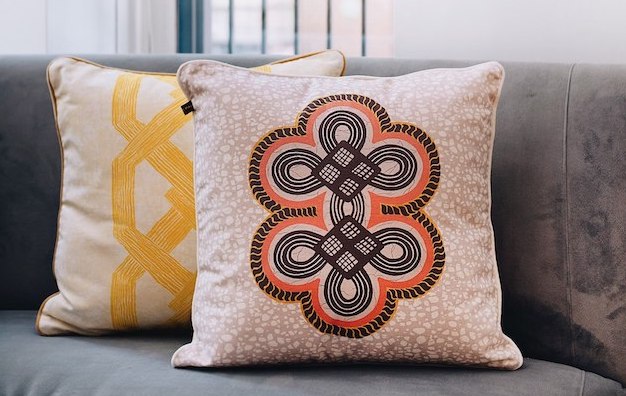
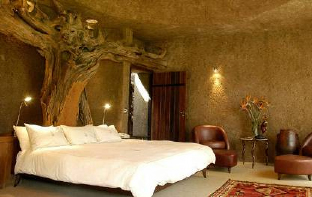
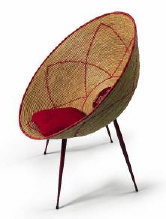
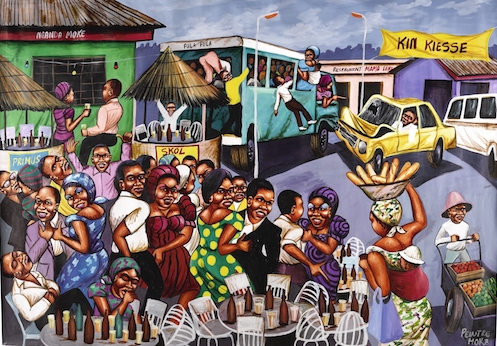
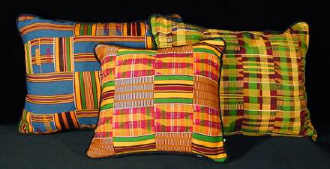
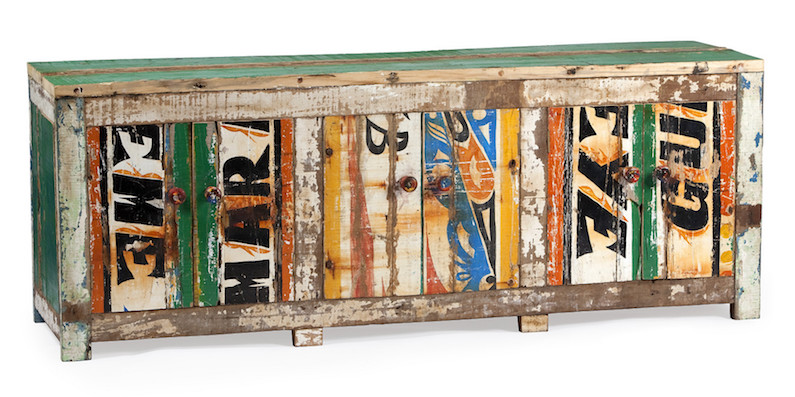
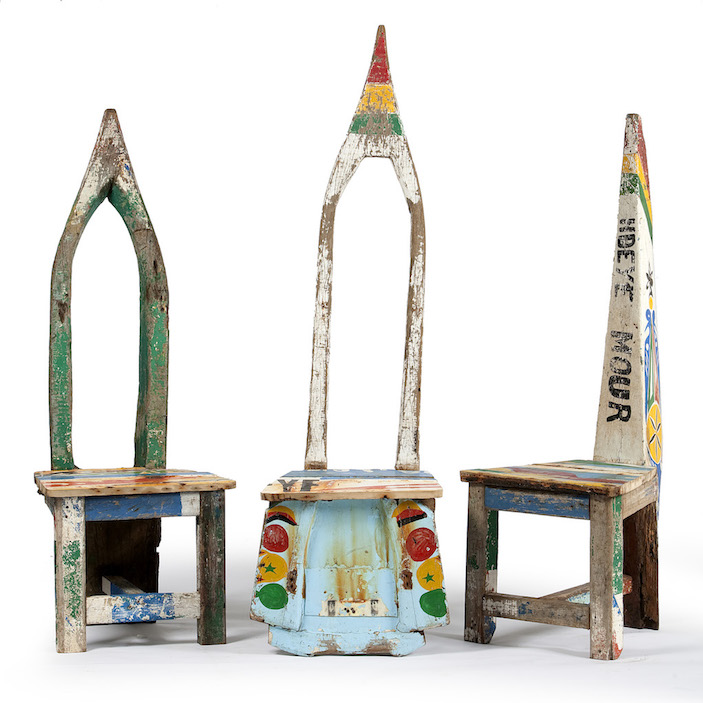
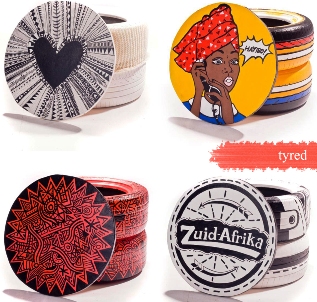
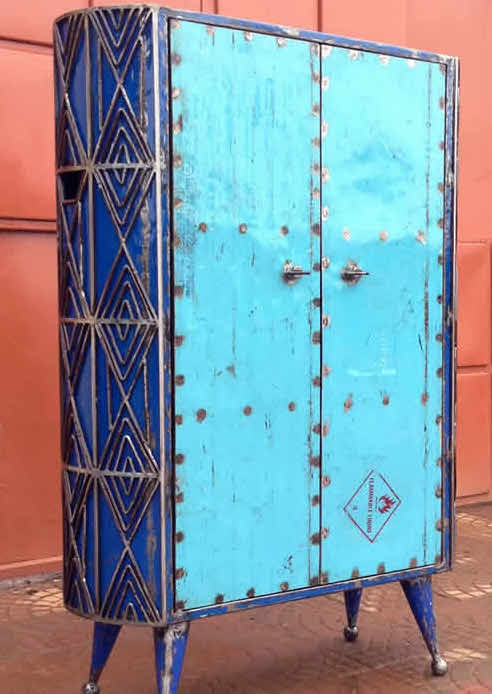
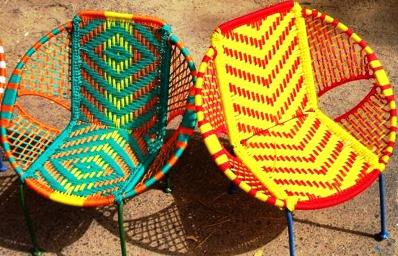
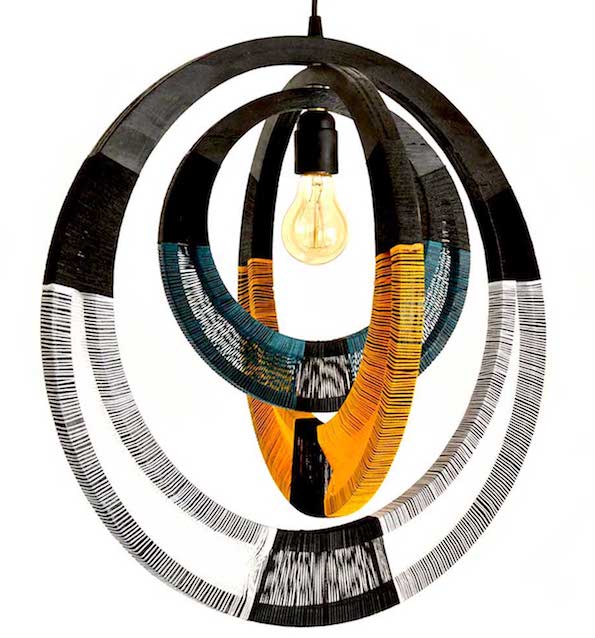
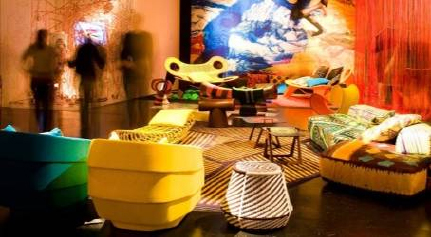
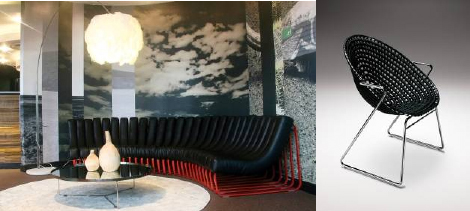
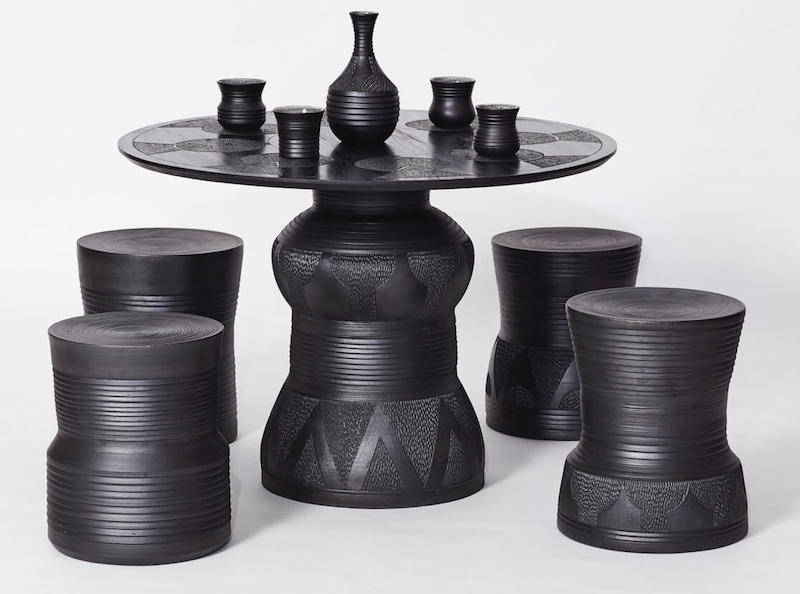
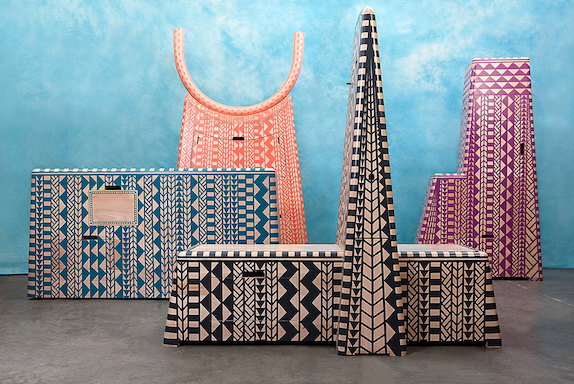
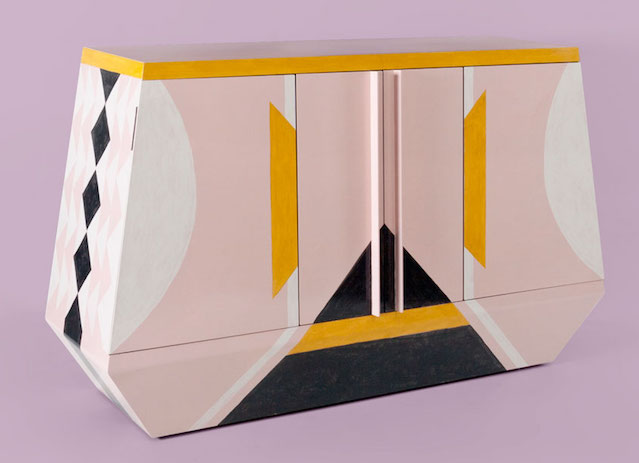
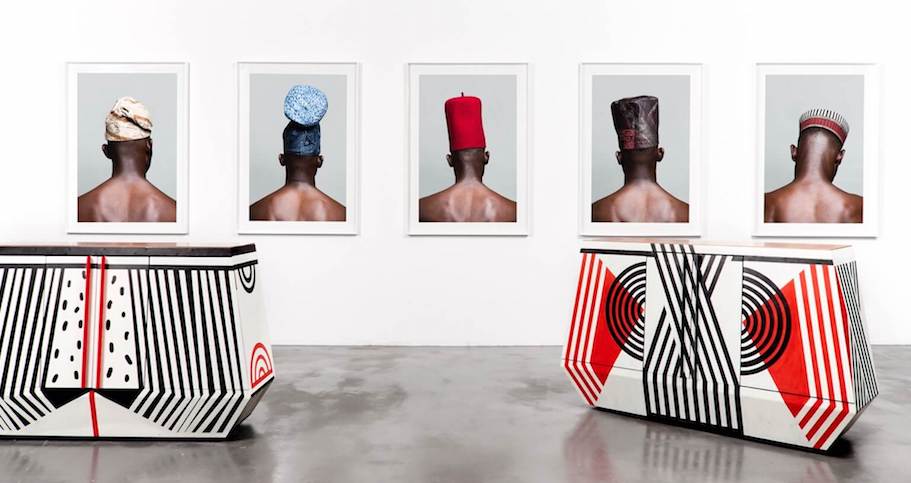
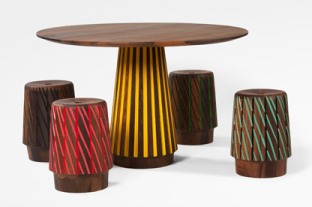
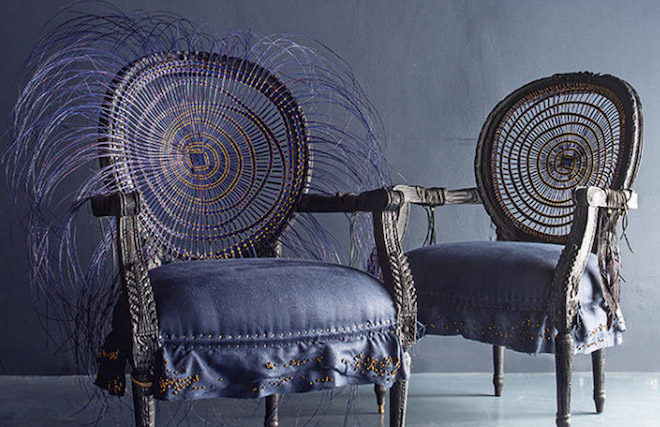
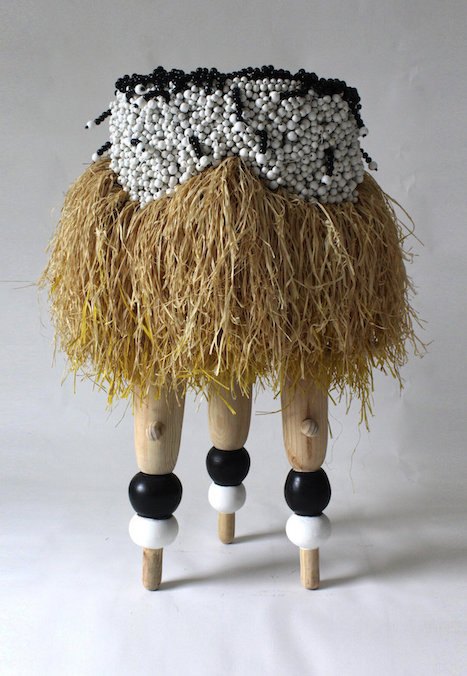
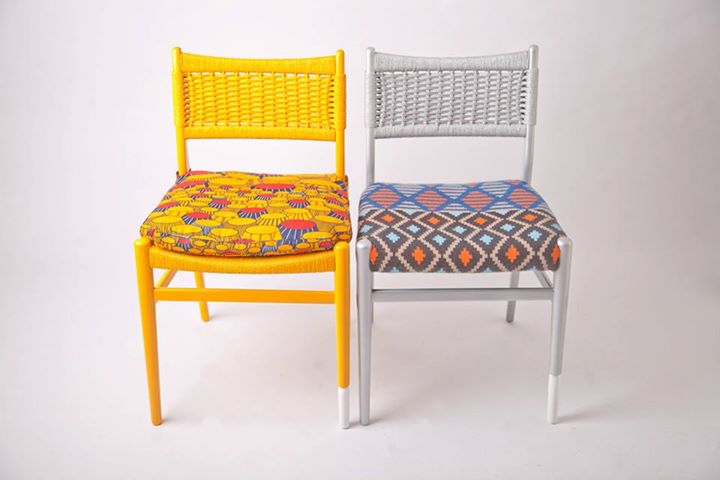
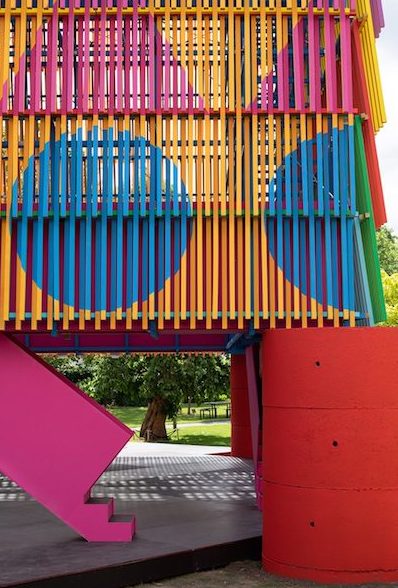
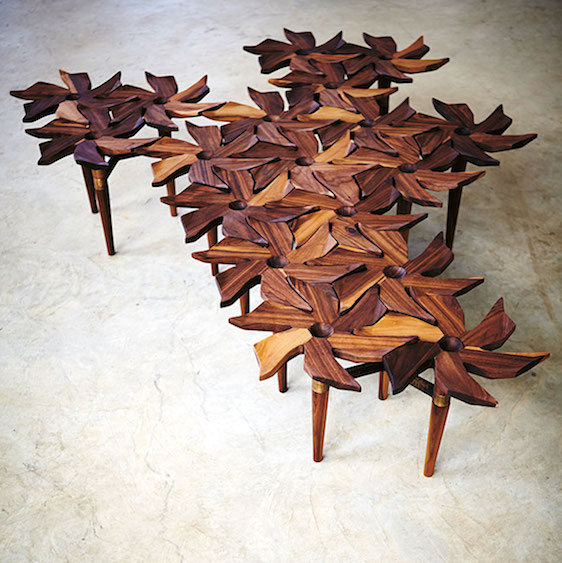
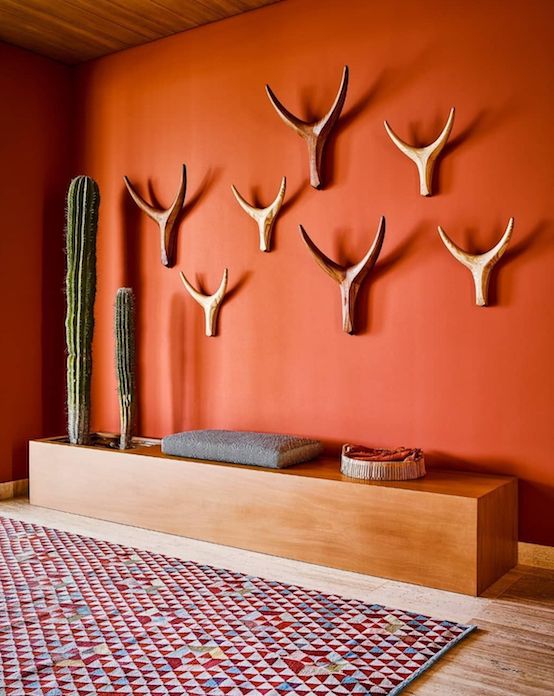
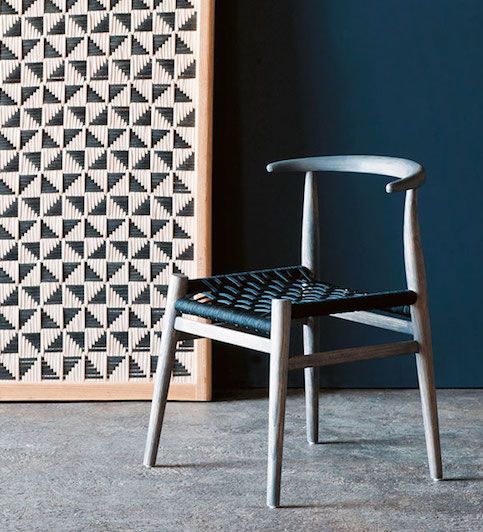
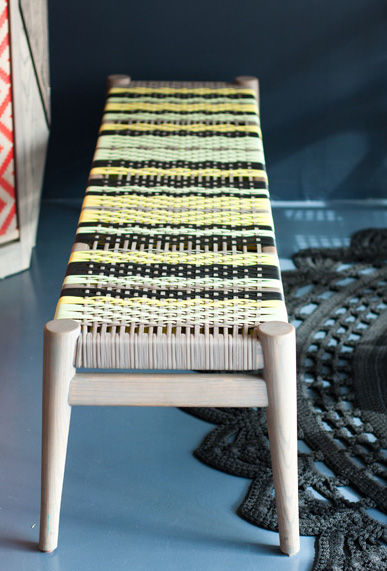

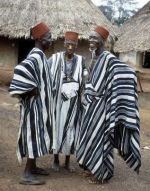
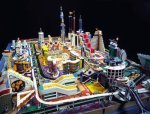
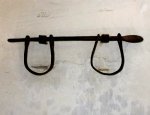
New! Comments
Have your say about what you just read! Leave me a comment in the box below.